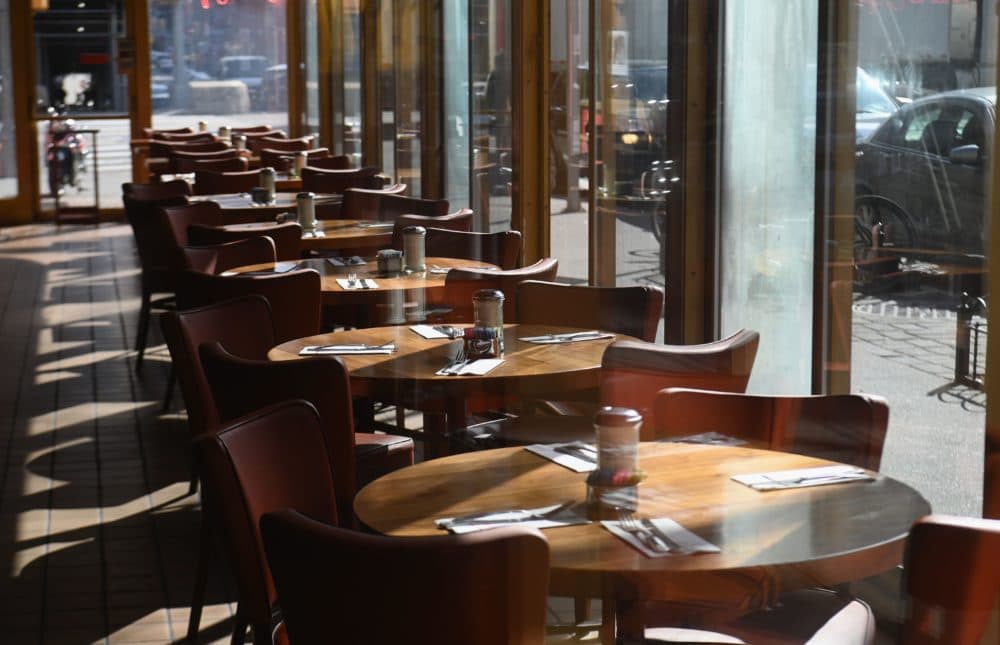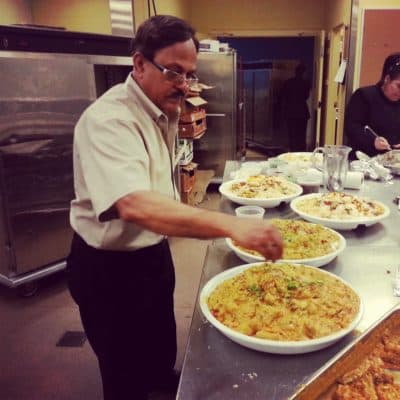Advertisement
'Barely Breaking Even' To Closed For Good: Pandemic Strikes Minority-Owned Businesses
Resume
After 29 years in business, Mobeen Ahmad decided to close his family-owned restaurant during the pandemic.
One local paper described Shalimar Fine Indian Cuisine as the longest-running Indian restaurant in Nashville before it closed in May. Customers donated $6,500 to a GoFundMe campaign to save the business and continue to send him kind words through text messages or emails, Ahmad says.
“I'm missing my routine, to be very honest,” he says. “It was a full-time job. I have many memories and stories with my customers. They have loved me a lot and I miss them a lot.”
Ahmad isn’t alone in his struggle: A report by the National Bureau of Economic Research found that 41% of Black-owned businesses experienced a drop in business activity during the pandemic. Latino-owned business activity fell by 32%, and Asian business owners saw activity drop by 26%.

Ahmad and his wife moved from Pakistan to Nashville with no restaurant experience and three kids to support. He worked for an airline for several years prior but wanted to settle down in the city.
When COVID-19 hit, the restaurant’s cash flow went negative and high interest rates on credit cards started impacting the finances, he says. He applied for a Paycheck Protection Program loan the first week of April but didn’t receive the money until the last week of May.
By the time relief arrived, it was “too little, too late,” and he decided to close for good, he says.
Ahmad enjoyed his job and feels confident that the restaurant would be open for business if it weren’t for the pandemic. Though he’s in no financial position to reopen, his faith makes him optimistic.
“I'm hopeful, God willing, if some help comes to me, I'll reopen again,” he says.
Some business owners like JP Lopez are finding ways to survive during the pandemic. He co-owns travel-inspired artisanal ice cream shop Wanderlust Creamery, which he and his wife opened five years ago. Starting in Tarzana, a small suburb of Los Angeles, Wanderlust Creamery now has five locations and an online business serving up unique flavors such as Sticky Rice + Mango and Ube Malted Crunch.
From mid-March to mid-May, the business switched to selling to-go pints of ice cream to limit employee interactions with customers. The success of selling pints gave the shop momentum to pursue an online store, Lopez says.

Revenue is down 75% compared to previous years, Lopez says.
“The initial round of PPP loans, it gave us a big boost to be able to bring our entire kitchen staff back,” he says. “I don't think [the government has] done enough to either warn everyone or just in general to help the situation. It's almost as if they left the restaurant industry out to hang.”
Lopez says he’s trying to secure more PPP funding in the second round to help plan for the uncertain future ahead, even with vaccines rolling out.
In 2021, Lopez plans to focus on selling pints online — the one part of his business that’s growing. The shop’s events team transitioned to working on the online business during the shutdown and began shipping pints nationwide during mid-December, he says.
For the first month and a half of lockdown, when the shop was “barely breaking even,” Lopez says he and his wife considered closing down permanently. But the couple set a break-even goal for each day and persisted.
“As long as we could pay the bills, keep the lights on, we're going to just try and keep things going,” he says.
Marcelle Hutchins produced and edited this interview for broadcast with Todd Mundt. Allison Hagan adapted it for the web.
This segment aired on February 5, 2021.

